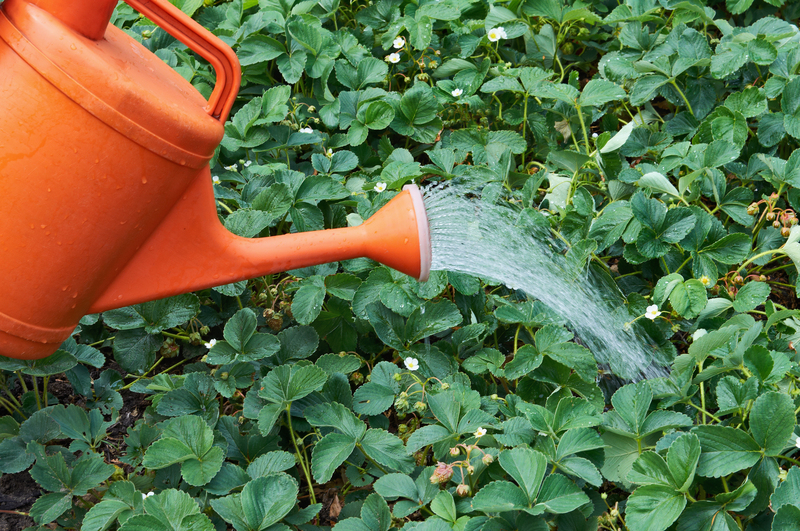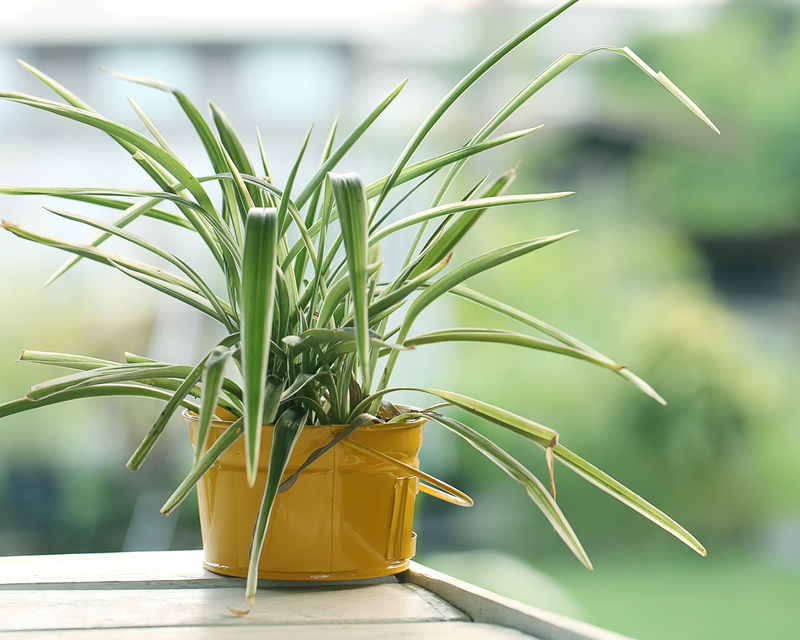Rethinking Disposal: Soil Boosting with Organic Waste
Posted on 03/09/2025
Rethinking Disposal: Soil Boosting with Organic Waste
Organic waste is often viewed as a problem for households and municipalities worldwide. With landfills filling up and environmental concerns mounting, it's time to rethink disposal and see organic materials as an opportunity rather than just trash. When used thoughtfully, organic waste becomes a valuable resource for soil health. In this comprehensive guide, we'll explore the science, methods, and benefits of soil boosting with organic waste, and how you can start making a positive environmental impact today.
The Environmental Crisis of Organic Waste Disposal
Did you know that a significant portion of municipal solid waste consists of organic materials--like food scraps, yard trimmings, and even paper products? Traditionally, these materials have been thrown away, ending up in landfills or incinerators. This outdated method of disposal has several critical drawbacks:
- Greenhouse Gas Emissions: Organic materials decompose anaerobically in landfills, releasing methane--a potent greenhouse gas.
- Loss of Resources: Disposing of organic matter means we're throwing away the nutrients that could enhance soil fertility.
- Landfill Overcrowding: The volume of biodegradable waste accelerates the exhaustion of landfill space.
- Waterway Pollution: Runoff from improperly managed organic waste can contaminate rivers and lakes.
Rethinking organic waste disposal is now crucial. Instead of contributing to these problems, we can transform organic waste into a solution--one that improves soil, supports plant health, and restores ecosystems.

Understanding Organic Waste: From Waste to Resource
Organic waste is any material that comes from plants or animals and is biodegradable. Common types include:
- Food scraps (vegetable peels, fruit rinds, coffee grounds)
- Yard debris (grass clippings, leaves, branches)
- Paper and cardboard (uncoated and not chemically treated)
- Manure from herbivorous animals
Soil boosting with organic waste involves using these materials to nourish and revitalize the soil. The process has many forms, from simple home composting to advanced vermiculture and industrial-scale organics recycling.
Why is Organic Waste Valuable for Soil?
- Rich in Nutrients: Organic waste contains essential elements--nitrogen, phosphorus, potassium, and trace minerals--that plants need.
- Improves Soil Structure: Adding organic matter increases soil's water retention, aeration, and microbial activity.
- Reduces Need for Chemical Fertilizers: Healthy, organic-rich soil requires less synthetic input, saving money and reducing chemical run-off.
By transforming organic waste into a soil amendment, we close the loop on resource use, returning what was grown back to the earth.
Compost: The Cornerstone of Soil Improvement
Composting is the most accessible and effective way to recycle organic waste. Through natural decomposition, composting converts waste into humus--a rich, dark substance teeming with nutrients and beneficial microbes.
How Does Composting Boost Soil?
- Enrich soil fertility with slow-release nutrients.
- Enhance microbial life, promoting nutrient cycling and plant health.
- Improve structure, making soil less prone to erosion and compaction.
- Increase water retention, reducing irrigation needs.
Getting Started: Composting at Home
Composting doesn't require expensive equipment--just a basic understanding of the right ingredients and conditions. Here's a quick guide:
- Greens (nitrogen-rich): kitchen scraps, grass clippings, coffee grounds
- Browns (carbon-rich): dried leaves, straw, shredded newspaper, cardboard
- Proper Aeration: Turn the pile occasionally to add oxygen.
- Moisture: Keep the pile as damp as a wrung-out sponge.
Well-balanced compost piles decompose quickly, producing an earthy-smelling, crumbly amendment perfect for gardens, lawns, and landscaping projects.
Vermicomposting: The Power of Worms
Vermicomposting is an advanced method of organic waste recycling that uses red worms (such as Eisenia fetida) to break down food scraps into supercharged castings. Worm compost (vermicast) is rich in plant-available nutrients and microbes, making it a premium soil booster.
- Compact and Odorless: Ideal for indoor use, even in small apartments.
- Fast Processing: Worms can consume half their weight in organic waste daily.
- High-value Output: Vermicast contains enzymes and plant growth hormones.
If you're passionate about rethinking organic waste management, vermicomposting is a powerful tool for households and schools alike.
Large-Scale Organic Waste Recycling: Community and Agricultural Perspectives
On a larger scale, municipalities and farms are investing in industrial composting and anaerobic digestion systems. These operations turn tons of food scraps, crop residues, and even animal manure into:
- High-quality compost for farms and landscapes
- Biogas that can be used for electricity or heating
- Liquid fertilizers rich in plant nutrients
Case Study: Cities like San Francisco and Toronto have pioneered curbside organics collection and commercial composting, diverting thousands of tons of waste from landfills each year while restoring nutrient cycles in regional soils.
The Science Behind Soil Boosting with Organic Waste
Organic amendments change soil in profound ways. Here's what happens when you incorporate organic matter from waste:
- Soil Microbiology Flourishes: Beneficial microbes break down complex materials, releasing nutrients for plant roots.
- Aggregate Formation: Organic matter binds soil particles, creating stable aggregates important for drainage and root growth.
- Buffering Capacity: Organic soils better resist pH swings and chemical imbalances.
- Natural Disease Suppression: Healthy soils with plenty of organic input can protect plants from certain pathogens.
Contrary to chemical fertilizers, which may boost yield in the short term, soil amendments from organic waste restore long-term soil vitality and resilience.
Best Practices for Soil Improvement with Organic Waste
1. Source Separation
Keep organic waste separate from plastics, metals, and hazardous materials. Clean feedstock produces higher quality compost and soil amendments.
2. Proper Processing
Consider what type of composting (backyard, vermiculture, or industrial) works for you. Shred large items to speed decomposition and maintain the proper mix of carbon and nitrogen for balanced breakdown.
3. Quality Control
Monitor compost piles for temperature, moisture, and smell. If compost is too wet or smelly, add more browns or turn for aeration. Finished compost should look dark, crumbly, and smell like forest soil.
4. Soil Testing
Test your soil to identify nutrient deficiencies or imbalances before application. This ensures you supplement appropriately and avoid over-fertilizing.
5. Application Timing
Apply compost and organics in the off-season, or before planting, so microorganisms have time to work and nutrients are readily available for crops or gardens.
Common Myths and Misconceptions
Myth: Organic Waste Attracts Pests and Smells Terrible
Fact: Correctly managed compost piles are not smelly and don't attract rodents or insects. Troubles arise from improper ratios or poor ventilation.
Myth: Composting Is Hard or Only For Big Gardens
Fact: Anyone can compost. Even city apartments can vermicompost indoors, using compact bins and minimal space.
Myth: Synthetic Fertilizers Are Always Better for Plant Growth
Fact: While chemical fertilizers deliver quick results, they do not enhance soil structure, long-term fertility, or beneficial microbial life. Soil boosted with organic waste stands the test of time, supporting sustainable food production.
Additional Benefits of Recycling Organic Waste
- Reduces Greenhouse Gas Emissions from landfills
- Reduces municipal waste management costs
- Promotes local food systems by enriching soils for urban agriculture and community gardens
- Protects waterways by reducing fertilizer runoff
- Fosters biodiversity above and below ground
How You Can Get Involved
Making a difference starts at home and in your community. Here's how you can start rethinking disposal and boost soil with organic waste:
- Begin a compost pile or vermicompost bin using your kitchen scraps and yard waste.
- Support municipal organics collection programs by separating food waste from regular trash.
- Purchase or use locally produced compost for your garden, pots, or landscaping.
- Become an advocate--educate neighbors or start a school organic waste program.

Future Outlook: Innovations in Soil Recovery and Waste Management
Technology and community action are combining to reshape our approach to waste and revitalize soils globally:
- Smart Bins and IoT: Digital monitoring of organic waste diversion and compost production.
- Biochar: Pyrolyzed organic waste that sequesters carbon and improves soil health.
- Community-scale Anaerobic Digesters: Creating energy from food scraps while producing liquid fertilizer for local farmers.
- Regenerative Agriculture: Farms closing the loop by recycling all organic outputs and minimizing waste.
Conclusion: From Waste to Wonder - The Promise of Organic Waste for Soil Health
Rethinking organic waste disposal means recognizing the untapped potential lying in our kitchens, gardens, and farms. By returning these materials to the soil, we create a circular system that benefits plants, people, and the planet.
Soil boosting with organic waste is more than a trend--it's an essential strategy for sustainable living and agriculture. Whether you're a home gardener, farmer, or city dweller, you can take action. Begin composting, support eco-friendly policies, and share your knowledge to help others. Each banana peel, coffee ground, or blade of grass you redirect from landfill to garden is a step toward healthier soils and a healthier Earth.
Let's rethink disposal and bring new life to both our soils and our communities--starting today.
Latest Posts
Garden Design Tips for Dog Lovers and Green Thumbs
Artistic Expressions with Custom Hedge Trimming Styles
Comprehensive Orchid Care for Beginners

